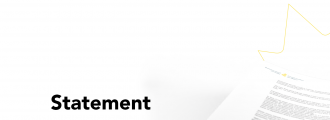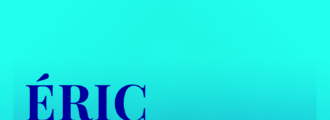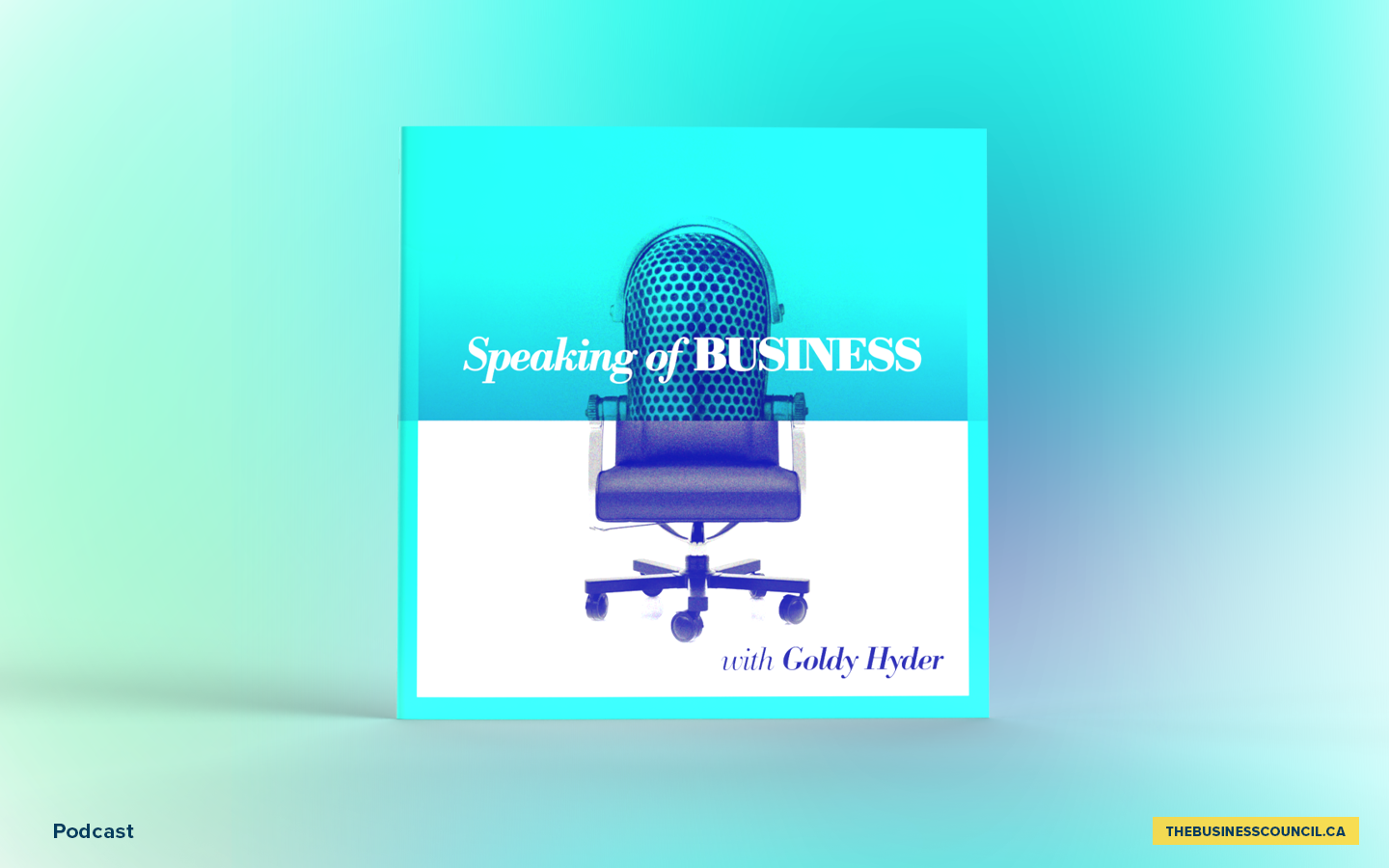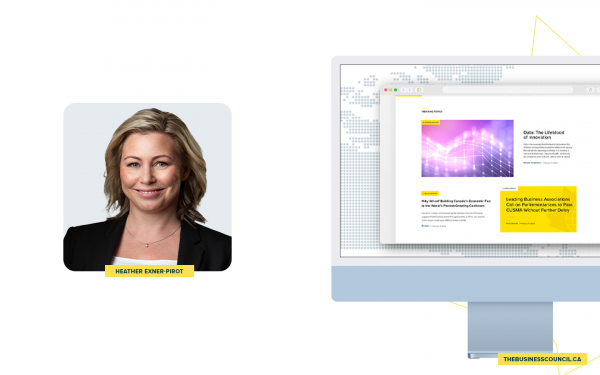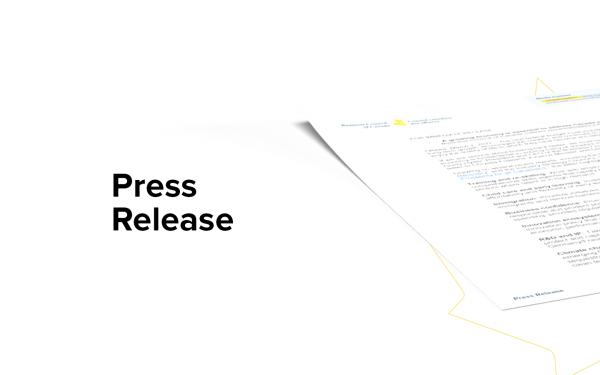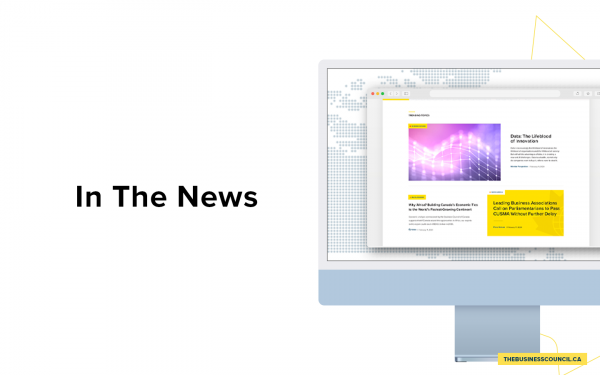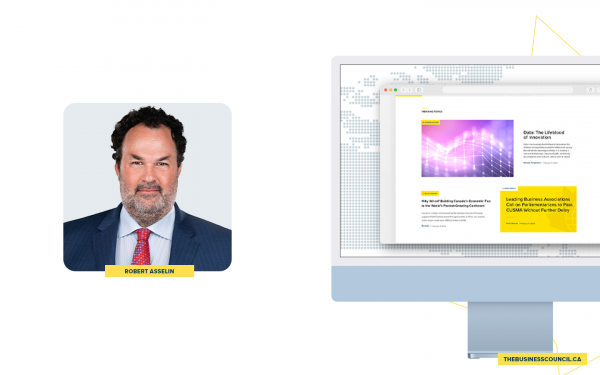The bright side of this is that it’s accelerated innovation everywhere
In light of the COVID-19 emergency, we’ve temporarily suspended our regularly scheduled series of conversations with Canadian CEOs. But we’re not going away. Instead, we’re going to pivot to the health emergency itself. We’re going to explore the impact on companies and workers across the country. And we’re going to find out how business leaders are responding to crisis.
“The bright side of this is that it’s accelerated innovation everywhere.” Faisal Kazi, President and CEO of Siemens Canada, reflects on how the COVID-19 pandemic has spurred technological advancements. He also discusses what he has learned as a leader, how he and his employees are giving back to the community during the crisis, and the many steps the company is taking to ensure employee safety.
Latest Podcasts
Transcript
Goldy Hyder:
Welcome to Speaking of Business. I’m Goldy Hyder of the Business Council of Canada. When COVID-19 started to spread in Canada, our lives changed, almost overnight. Suddenly, we became more dependent than ever before on technology and, as we’ll learn how to co-exist with the virus over the coming months, we will be relying on new technology to help us through even more. My guest today is a true champion of innovation. As President and CEO of Siemens Canada, Faisal Kazi oversees 4,000 employees who are focused on finding solutions to some of the biggest challenges of our time, including sustainable energy, intelligent infrastructure, healthcare, and manufacturing. Welcome to the podcast, Faisal. Great to have you here.
Faisal Kazi:
Thank you very much Goldy. Thank you for having me here.
Goldy Hyder:
Well, let’s jump right in. You know Siemens of course, a well-known global company, it’s a leader here in Canada. Talk to us about how the pandemic has changed the way you’re operating, both nationally and, perhaps, even globally.
Faisal Kazi:
Yes, Goldy, it actually changed quite a bit. And as you know, just to give you an idea of Siemens in Canada, at least, has about 44 offices. We have about 10 factories and we are electrifying, automating and digitalizing all the critical infrastructure in this country, from energy to industry to healthcare. Once we realized the situation with COVID-19, we had to actually pivot really fast. We were essential suppliers, so we had to keep our operations open. Nevertheless, we said, the health and safety of our employees will be the number one priority.
Faisal Kazi:
Having said that, we could categorize our employees into three categories. The first category being the employees who are going into the offices. Fortunately, we have been driving remote-working for a long time. So a lot of our employees are very used to working from home. So what we said to them is that, if you can work from home, then you must work from home.
Faisal Kazi:
Here the challenge was, more, maintaining the IT, the bandwidth of our network, et cetera, from about 20% people working remotely to, now, suddenly, switching to more than 90 or 95%. I’m glad our IT folks got that correct so that systems are working well. But it’s a big change. So the people going into the offices, of course, we have to ensure the cleaning is hospital-grade cleaning. We ensure that we are keeping the physical-distancing. We have screenings and registrations, all the measures on the place.
Faisal Kazi:
The second set of employees category is the people who are running the factories. The factories had to run. This was, I would say, a bigger responsibility and our people were going in. We had to, of course, implement, first, all the measures of physical-distancing and cleaning and screening, et cetera. But we had to actually remap our working processes to ensure that our process is set up now in a way that the process doesn’t allow people to come closer to each other. So there was remapping in our factories. Then, of course, we went to double shifts or triple shifts to ensure that, at a given time, we don’t have a full workforce in the factory. So that was quite a change. We managed through that.
Faisal Kazi:
The other element is, of course, the service employees. There we have all the protection equipment has been provided to our employees but there is an aspect which we don’t control and that’s why we are very, very focused on that. That is the sites where they are going to our customers. We have to make sure that those sites are fulfilling the requirements of physical distancing, et cetera and our employees would be safe. So that has brought in another process of checking the status of the site before sending our employees there. We have a logo, is “No job has priority over safety.” So, that’s the principle we are following and we are running the operations.
Faisal Kazi:
To your question on globally, I think we have proven our resiliency. Our supply chains are running, very, very well running and also the same status as in Canada, our operations have been running. Of course, in countries like India and other countries like Spain, Italy, during the crisis, we had to shut down factories and offices but we are well-managing. We are a big community. We talk every week, all the CEOs of the different Siemens organizations and we are working through it.
Goldy Hyder:
Well, that’s great. Thank you for sharing that with us and to give our listeners a good picture of what it means to be an essential service and yet make sure that safety and well-being of employees is paramount. Now, you also mentioned customers in your response. So if someone ask you, what are you hearing from customers, particularly as we get ready to restart the economy? I saw a LinkedIn post from you where it talked about how the IOT can be a contributor to create a safe workplace. Talk to us about that.
Faisal Kazi:
Yeah, Goldy. I think, now, we all want to get the economy back and we want to get back into business. But we also… I think everybody who I talk to says their health and safety is number one priority and that is where innovation is coming in. We have our digital building IOT applications, IOT app, which allows us to manage the building occupancy. Even it can run analytics on how many people are where, how is the occupancy of the building. We can do thermal assessments, and if you have visitors coming in, you can track the visitors, how they are moving within the business. It allows, also, social-distancing.
Faisal Kazi:
So this app, which has been there but we have enhanced it, I think is going to play a crucial role to people like me and you. When we are asking our people to go back into the offices, I don’t feel comfortable today and I rather have IOT application, which is monitoring this so I know exactly what’s going on. In a very interesting fact is about the elevators. We have, in our office, that only one person per elevator. You can imagine now what kind of traffic jam that can create in front of the elevator. So our guys have come up with that innovation as well. So, you can call the elevator on demand, so you don’t need to stand there. Once your turn comes, it’s going to ring the bell on your mobile phone and you can go there.
Faisal Kazi:
I think this is something we are really looking forward to bring this technology into Canada and give it to our colleagues and to the industry to use, ensure that people are safe, that we ramp up the economy back, while this crisis is going on, in a safe and in a secure manner.
Goldy Hyder:
I must say I’d heard of as few as four to an elevator but I had not heard one. So that’s taking it to a whole new level. But as you said, technology can be an enabler and facilitate safety at the same time. What other examples do you have because I know you’re huge on innovation, as I said in my introduction. It’s often said that necessity is the mother of invention. What are some of the innovations that you’re developing now, or down the road, that you think will help us get through this situation?
Faisal Kazi:
So Goldy, I think you’re right. What I see now is that there is a significant acceleration towards digitalization and what I also realized, that the solutions, which we already had, were not maybe fully utilized. Like we have, currently, our remote services, we had our smart grid solutions, the digital building solutions, the digital design and simulation tools and this crisis have pushed us to use them more and they are proving to be very, very efficient. So I’ll give you from our digital grid side, an example.
Faisal Kazi:
One of the Canadian provinces suspended the time of use for electricity rate just to help the people in the province. We use this energy IP system, which is the backbone of the system. We could seamlessly fulfill that wish of the government and managing the back-end billing processes for all the people. So that’s something the technology came in. Where we are also seeing current technologies, the hospitals have different requirements now. They want secure, clean rooms. They want a different kind of a nurse call system. They want a pressurized control environments. So we have implemented wireless logs and technologies, which are making sure that our frontline workers, the people who are working in the hospital, et cetera, are secure.
Faisal Kazi:
So this is ongoing and there are many more examples. But to your question on new innovations, I think the first step for us was, when we were… We have been following Germany, Spain as part of a global company, and the U.S. The first step was to a concept for temporary healthcare facilities; mobile health care facilities, conversion of facilities of hotels and other buildings into hospitals and luckily I think, in Canada, we didn’t see that crisis which we saw elsewhere in New York and other places. But we are ready for that. We have a concept for that and we are ready to implement.
Faisal Kazi:
What I’m really proud, we have pivoted fast. We are going to, now, launch in Canada, the COVID testing, not only about positive testing of the COVID cases but also antibodies testing. So this is something our healthcare business, Siemens Healthineers, is going to launch end of this month, and then, as I said, this IOT applications. This is, I think, a game-changer. It not only safeguards people going into the buildings but it’s also increasing the efficiency of the buildings and reducing the energy consumption because it has also elements like controlling the lights. So depending on how the sun is shining outside, the dimmers will automatically dim the light. So in our own office, we could reduce the consumption of electricity by almost 50% in the areas we have installed that.
Faisal Kazi:
So these are technologies, and I tell you Goldy, we have a list of these new technologies. Two weeks ago, we had two pages full of these technologies, last week, in our global call, we had four pages. So people are coming up with new innovations and that’s what I really like,, that the bright side of this is that it has accelerated innovation everywhere.
Goldy Hyder:
Well, I can hear it in your voice. I can hear the excitement in your voice and you’re right. This is a common theme I’ve heard in a lot of my CEO interviews. That is, on the one hand, it’s driven innovation, which is obviously a good thing but it’s also accelerated the adoption of that innovation and the digital transformation on the customer side. So, certainly, a legacy on the positive of this unfortunate situation we’re in. Let’s talk a little bit more about Siemens from a global perspective. You’ve launched a global fund to help those in need during this crisis. Tell us how it works.
Faisal Kazi:
Yes Goldy. I think we, in our top management teams and our management board, I think we said, “This is the time for a company like Siemens, which is 172 years old to give back to society.” I know it’s a difficult time for ourselves, for our employees, for all of us. So that’s the spirit. We want to give back. So we launched, under the branding of Siemens Caring Hands, a global fund is to support people in need, globally, and it has two elements. The first element is employed in nations. We have very generous employees and Siemens has said that every dollar donated by our employees will be matched by the company.
Faisal Kazi:
Then the second element is the commitment of the senior management and we, as a senior management across the world, have committed that we will donate our entitlements, from all our own entitlements. I’m actually quite proud to say that we just started some weeks ago and at the moment, we have already have more than 11 million euros collected, which is a pretty impressive sum. It will be like 16-17 million Canadian dollars and we are going to give it to the people and to the organizations which need the most
Goldy Hyder:
That’s phenomenal. What an incredible program that is. So thank you for sharing that with us and thank you for the leadership that you and your company are showing. I also heard that your employees are getting in on the action to do good as well and they’re volunteering their time to refurbish computers. Tell us about that.
Faisal Kazi:
Yes, Goldy. So that’s a program we are really proud of. We have been doing it for some years now. Just to give you a background, all our employees are equipped with a high-end computers because industrial applications are running on our computers but after a couple of years, we replace them. What we saw that our computers, even if you are replacing for our heavy high-end applications, they are powerful enough to manage applications which a normal person will use, like Microsoft Office, or emails, and surfing, et cetera. So what we do is, these computers need to be cleaned up, they need to be reconfigured. So we have a volunteers program, about 750 employees of Siemens Care have volunteered in the past.
Faisal Kazi:
So we come together, we refurbish these computers and then we donate them. So we have donated around 4,000 computers to date. As this global crisis came in March, since March, we’ve already done more than 500. I think there was a lot of 500 and then we did, just recently, 80 computers which we donate to people and especially schools and children’s because we started this program as access to technology and it very quickly changed into access to education because you have also kids. A child now going to high school or in school just cannot survive without a computer. Not everybody in Canada has the ability, if you have three or four children, to give them computers. So the need to access to education and so, we are donating them through our partners like United Way.
Faisal Kazi:
I like to share that, because of this program, we had to come together, we needed IT specialists, came also to a halt, because of COVID, because we could not come together. In our facility in Peterborough, they started an initiative. They said, “We will refurbish these computers at home.” So all the computers were dropped at people’s homes, and they, together with their families, refurbished them, and they were picked up and they will be now donated to families in the Peterborough area, who are needy and they could be [inaudible 00:14:41]. So I thought it’s a good thing. And we want to continue with that and provide this to two families who cannot afford it.
Goldy Hyder:
That’s great. Thank you to your employees for that, as well. Let me ask a final question, if I can. Again, you’re part of a big global corporation. You interact with a lot of leaders. Tell me what you’re learning about being a leader during a crisis.
Faisal Kazi:
Goldy, this is a really good question and I ponder on it also all the time. What have I learned from this? I think the one thing I really learned about my organization is the resiliency of the people and our organization. Our people stepped up in a way, I must admit, I had not imagined and this is a very strong, and I say, I think, we’ve come out of describes is stronger than before. People stepped up and despite the missing interaction, things are moving fast. I think that’s the first one lesson I learned here.
Faisal Kazi:
The second lesson, which I also learned for myself is, communication is key. Communication with employees, communication with customers, especially at a time of need and when I focus towards our employees. Everybody is in a different situation. Some people are not used to working from home for such a long period. They like interaction, the extra words, they’re missing that. Some people have family issues. Somebody in the family is diagnosed with COVID and this is the time now for us to really enhance the communication and talk to them. I think the reason our people step up is active communication, which we do.
Faisal Kazi:
Same with the customers, I learned that this crisis brought us together with people we were having, in the past, formal communications. Today, I can have some personal communication because everybody’s saying, “Oh, I have elderly parents, I’m worried.” So it’s a little personal touch coming to it. And so communication is the second thing I learned. The other thing I really learned is, the technology which we already had at hand, we were under- utilizing it and this has been proven now that it can do much more.
Faisal Kazi:
So these are the three things I have learned and I feel these are important lessons which one learn and see. For me, also, have been very important to really put the people in the front because when we say health and safety for the people are number one priority, putting them first is also very, very important. I think it makes a difference.
Goldy Hyder:
That’s certainly another consistent theme throughout these podcasts. So thank you. Thank you for being the leader that you are. Thank you for taking the time to share with us the great work that Siemens is doing as an essential service, I hear in the country and around the world. We appreciate you sharing and all the best to you and your team.
Faisal Kazi:
Thank you very much Goldy, and all the best to you and your family and your team and stay safe.
Goldy Hyder:
Faisal Kazi is the President and CEO of Siemens Canada. If you would like to hear more of our conversations with business leaders about the COVID-19 crisis, you can find them all wherever you get your podcasts or simply, go to our website, SpeakingOfBiz.ca, that’s biz with a zed. Until next time, I’m Goldy Hyder. Thanks for joining us.
